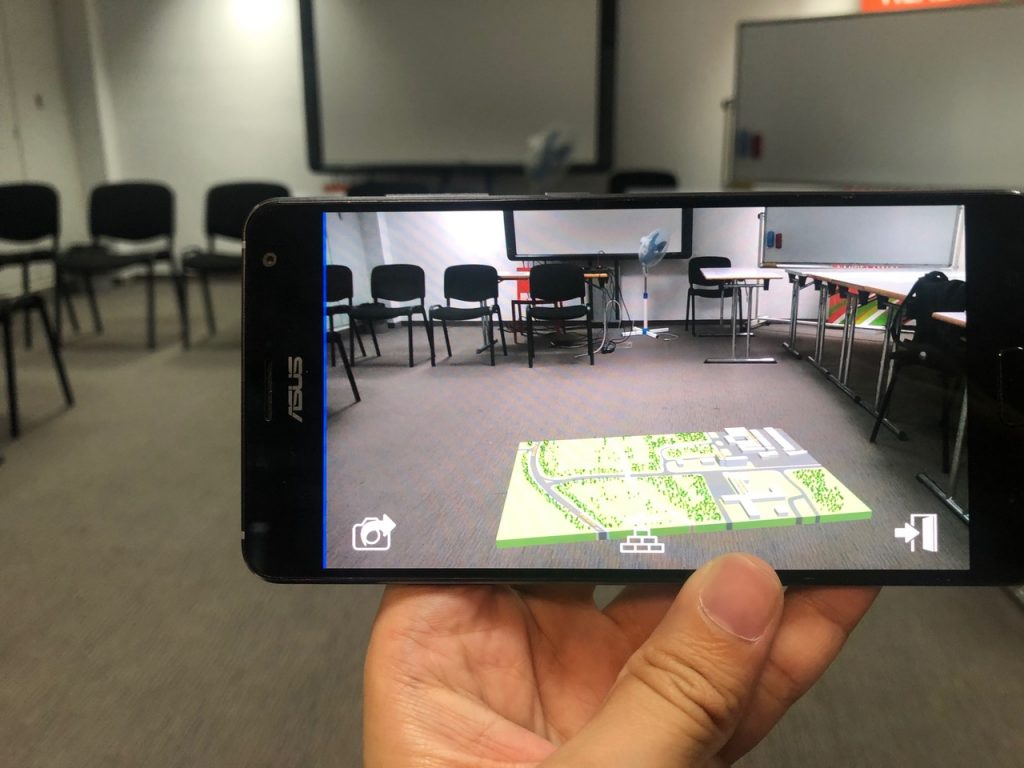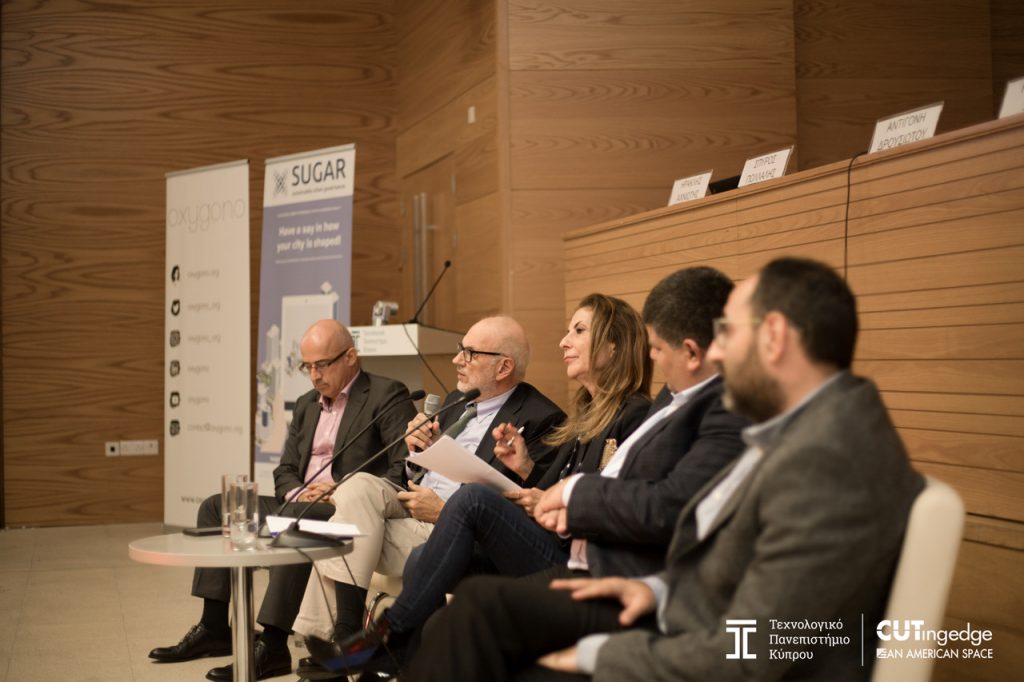A research project coordinated by the Cyprus University of Technology partnering with the University of Cyprus and Harvard University examined the potential of augmented reality in achieving sustainable urban governance.
The project Sustainable Urban Governance through Augmented Reality (SUGAR – sugar.cyprusinteractionlab.com) has been successfully completed, responding to the key question: whether innovative technologies, and in particular augmented reality can help planning authorities that are looking for more efficient ways to involve the citizens in the decision-making process as well as citizens who want to have a say in the development of their urban environment.
Researchers from the three universities studied best practices and focused on activities and methods for public participation in the decision-making process culminating in a planning participation framework and an application created exclusively for the research project with a case study offered by the Municipality of Aglantzia in the capital of Cyprus.
The research team having concluded the study, emphasizes that achieving procedural transparency and cultivating trust between authorities and citizens are the main factors that will determine the success of any consultation process. The project showed that technology through its capabilities to visualise urban space in three dimensions allows the public to effectively interact and explore the environment without restrictions and takes the discussions away from pre-defined and carefully selected rendered views of a polished final product. The application developed under the project in conjunction with the sustainable urban governance action framework created by the project team, is based on building a platform of open communication between authorities and the public using a common vocabulary, tools and environment.
In addition, the action framework that has been created is available as policy briefing document on the project website and we invite all interested parties to use it as a guide to enhance participatory urban planning processes.


